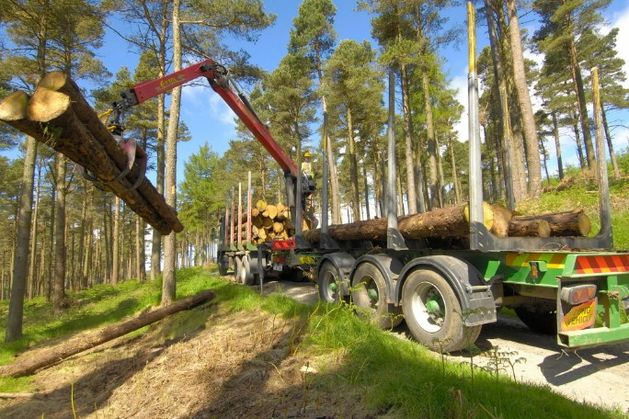Releasing results on Thursday, the company said it made a €61m operating profit in 2023, compared to €119m the previous year. Revenue at the group declined almost 16pc to €414m.
The semi-state company said it had delivered a “solid financial performance” despite “volatile market conditions, with high inflationary pressures, rising interest rates and lower end-market demand resulting in lower prices”.
Coillte chief executive Imelda Hurley told the Irish Independent that she expects 2024 to be another challenging year for the group, with the company entering the period with a lower pricing point for its products compared to a year ago.
“During the year we experienced volatile market conditions which impacted end-market demand for our products and resulted in significantly lower prices,” according to Ms Hurley.
“We’re now pleased too see a level of stabilisation in pricing and early signs of consumer confidence,” she added. “It will be a challenging year. We’re going to focus on controlling the controllables.”
She pointed out that sawlog and panel products are globally traded commodities, which are closely linked to the construction sector, with the result that Irish pricing reflects the impact of global demand and supply dynamics.
She added that pricing had started to decline in 2022 and continued last year. Over the course of 2023, Ms Hurley said prices for those products fell about 25pc.
“We do our best to optimise our pricing, but what we have to focus on is ensuring we’re managing our production, which we can control, and managing our cost base” she added.
Of Coillte’s revenue last year, €293.1m was generated by its Medite Smartply unit, which makes timber construction panels in Clonmel and Waterford. Almost €190m of the unit’s sales last year were made in the UK.
Coillte’s aims to produce 25m cubed metres of certified Irish timber to support the construction of 300,000 new homes in Ireland by 2030. It wants to see the number of timber-framed homes built in Ireland rise from 20pc to 80pc of the total by 2050.
“In the near-term, notwithstanding some macroeconomic and geopolitical uncertainties, Coillte expects to see demand across its core end-markets stabilise, underpinned by an improved macro-economic outlook coupled with a rebalancing of relevant demand and supply dynamics,” the company stated.
It added in its annual report that inflationary cost pressures “continue to place a strain” on the company, “particularly for those input costs that are closely correlated to movements in gas and oil prices”.
During the year, Coillte refinanced its existing debt facilities resulting in €150m of available debt facilities, in addition to net cash of €65m.
It also paid a €17.7m dividend to the Exchequer in 2023. That included a final dividend of €7.7m in respect of 2022 and an interim dividend of €10m in respect of 2023.
The company also advanced €18m in shareholder loans to its joint venture with the ESB, FuturEnergy Ireland, to facilitate its wind energy development portfolio. During 2023, FuturEnergy saw its first developed wind farm – a 30MW project at Lenalea in Co Donegal – come on stream. That project is a joint venture with SSE.
FuturEnergy has a goal of having 1GW of renewable energy sites operational by 2030.

